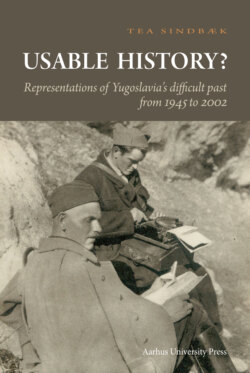Читать книгу Usable History? - Tia Sindbaek - Страница 24
3 Establishing an official
narrative, 1945-1948
ОглавлениеThe ‘National Liberation Fight’ of the communist led Partisans during the Second World War was the core of the founding and state-bearing myths of socialist Yugoslavia, providing political legitimacy to the communist hold on power. The successful fight against the Axis occupiers, their Yugoslav collaborators and the Partisans’ political opponents paved the way for the establishment of communist rule in the re-constructed Yugoslavia. The war had, however, also been the scene of large scale massacres and atrocities among different groups of the Yugoslav population, which would obviously challenge the rebuilding of Yugoslavia as a multiethnic common state. Thus the communists, while developing and exploiting the myths of the war, had to manage a recent history of internal political and ethnic violence and large scale massacres.
At the establishment of communist rule, the complex and many-sided conflict that had been the Second World War in Yugoslavia was reduced to a simplistic Manichaean account, glorifying those now holding power. The history of war crimes and massacres, many of which had been part of fundamentalist ethno-nationalist policies involving Yugoslavia’s peasant masses, was reduced to fit that uncomplicated narrative.
This chapter investigates how the internal Yugoslav massacres of the Second World War were presented in official accounts immediately at the end of the war. It shows that the history of massacres and war crimes was embedded in a simplistic overall interpretative framework according to which the good Partisans were on the one side and all their opponents on the other. In comparison to the Partisans’ strategic exploits and the military development of the war, massacres and war crimes received relatively little attention and were mainly referred to in order to emphasise the cruelness and bestiality of the anti-Partisan forces.
